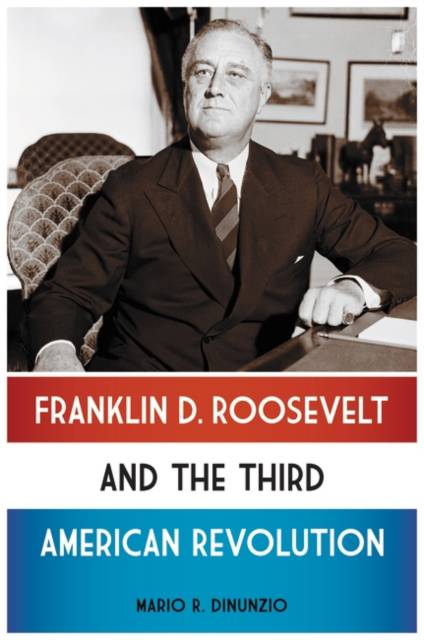
- Retrait gratuit dans votre magasin Club
- 7.000.000 titres dans notre catalogue
- Payer en toute sécurité
- Toujours un magasin près de chez vous
- Retrait gratuit dans votre magasin Club
- 7.000.000 titres dans notre catalogue
- Payer en toute sécurité
- Toujours un magasin près de chez vous
48,95 €
+ 97 points
Description
This book argues that Franklin D. Roosevelt's work--of which the New Deal was a prime example--was rooted in a definitive political ideology tied to the ideals of the Progressive movement and the social gospel of the late 19th century.
Roosevelt's New Deal resulted in such dramatic changes within the United States that it merits the label "revolutionary" and ranks with the work of Washington and Lincoln in its influence on the American nation. The New Deal was not simply the response to a severe economic crisis; it was also an expression of FDR's well-developed political ideology stemming from his religious ideas and his experience in the Progressive movement of Theodore Roosevelt and Woodrow Wilson. Franklin D. Roosevelt and the Third American Revolution describes the unfolding of his New Deal response to the crisis of the Depression and chronicles the bitter conservative opposition that resisted every step in the Roosevelt revolution. The author's analysis of Roosevelt's political thought is supported by FDR's own words contained in the key documents and various speeches of his political career. This book also documents FDR's recognition of the dangers to democracy from unresponsive government and identifies his specific motivations to provide for the general welfare.Spécifications
Parties prenantes
- Auteur(s) :
- Editeur:
Contenu
- Nombre de pages :
- 208
- Langue:
- Anglais
Caractéristiques
- EAN:
- 9780313392832
- Date de parution :
- 07-04-11
- Format:
- Livre relié
- Format numérique:
- Genaaid
- Dimensions :
- 165 mm x 240 mm
- Poids :
- 530 g







